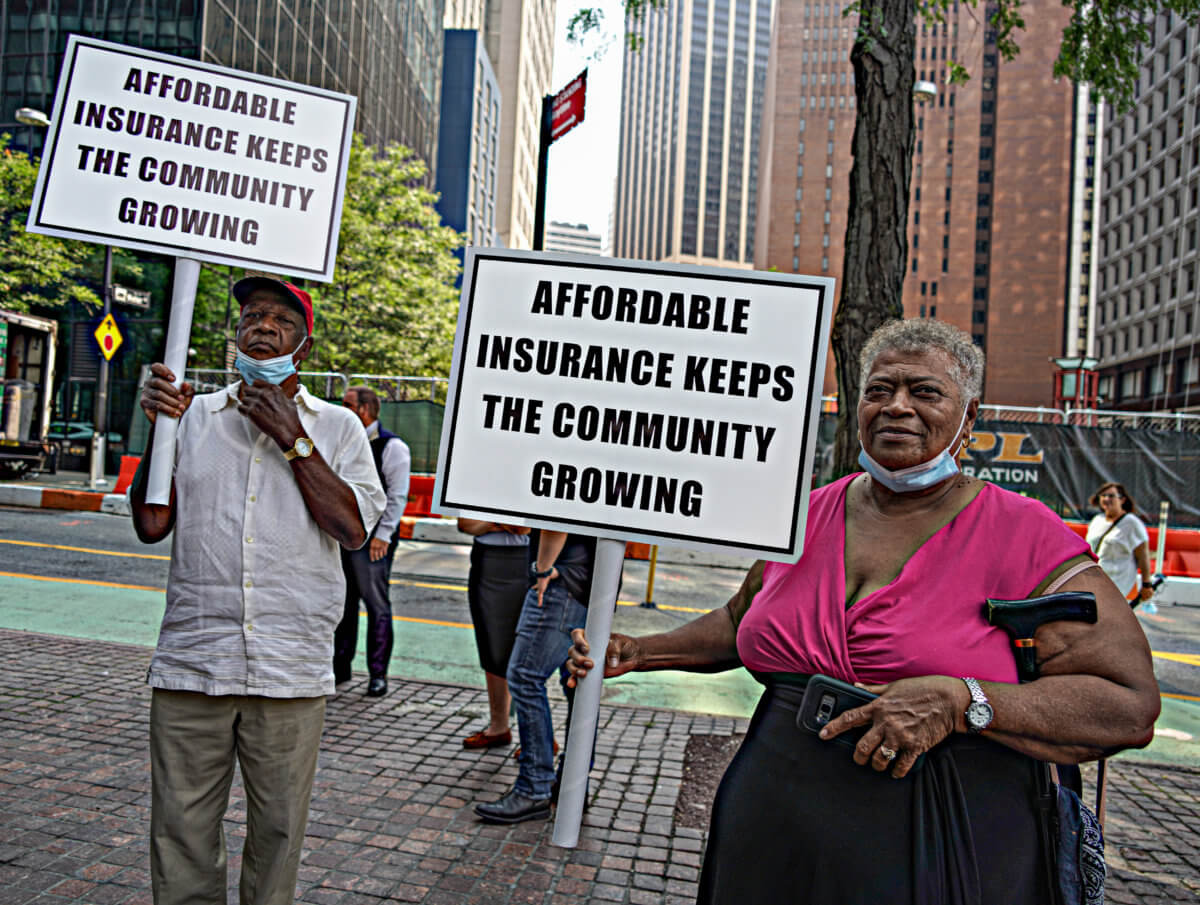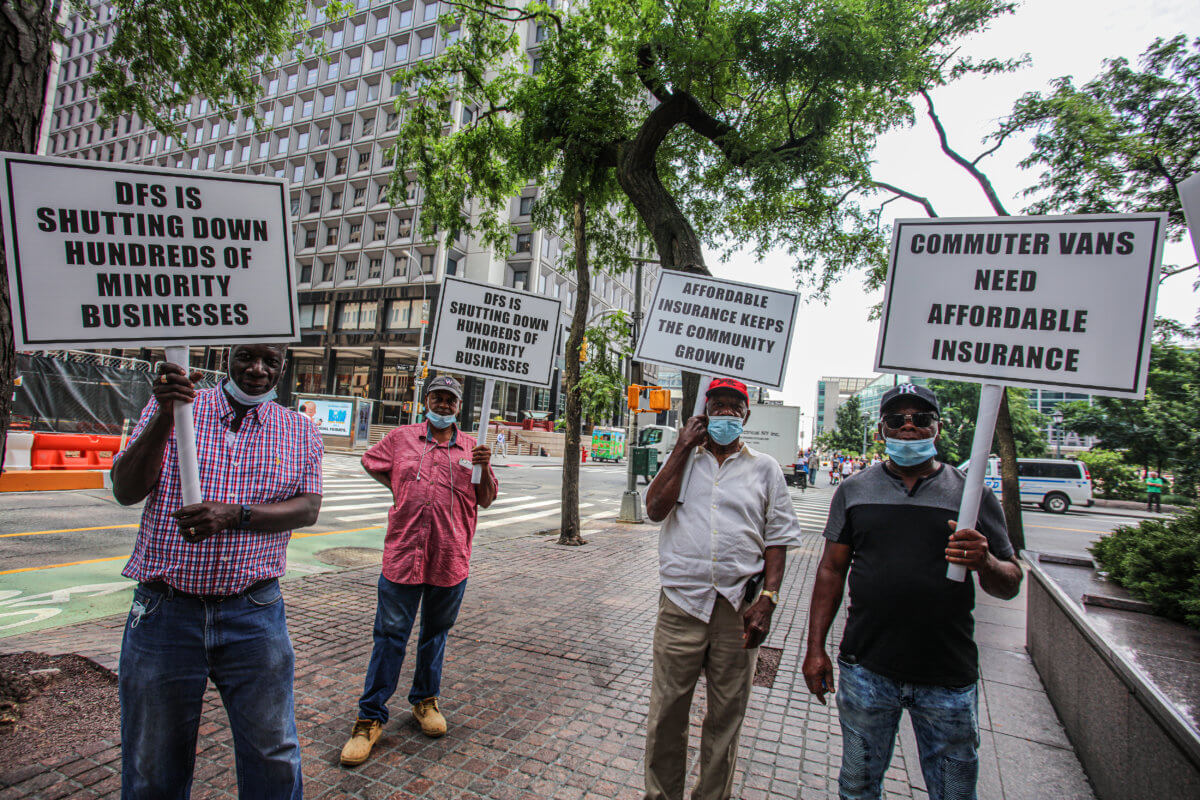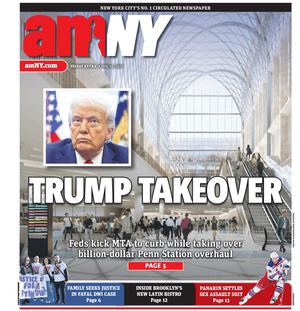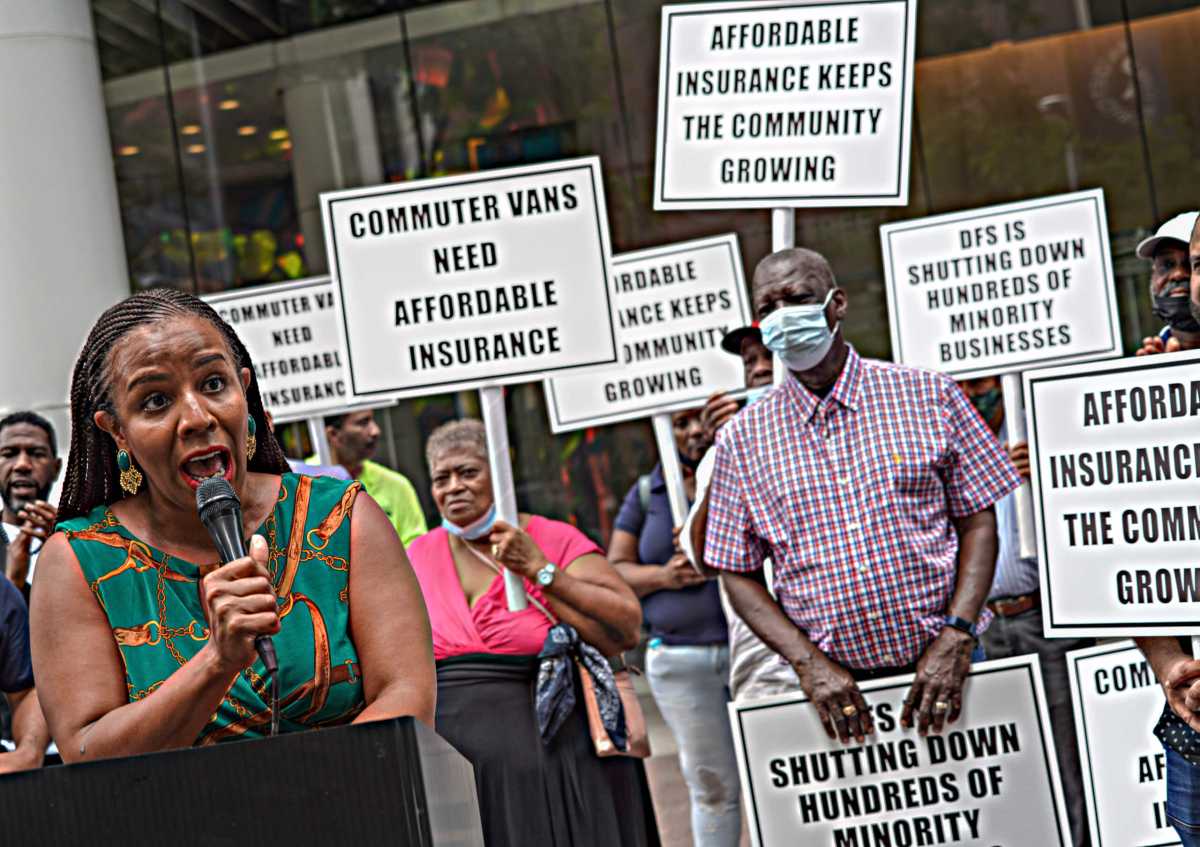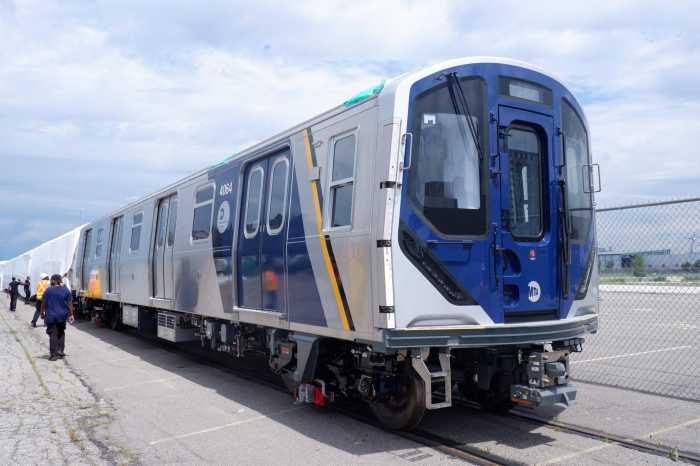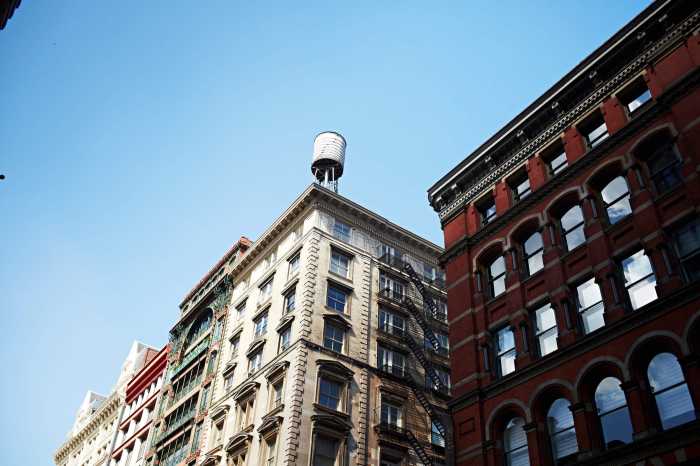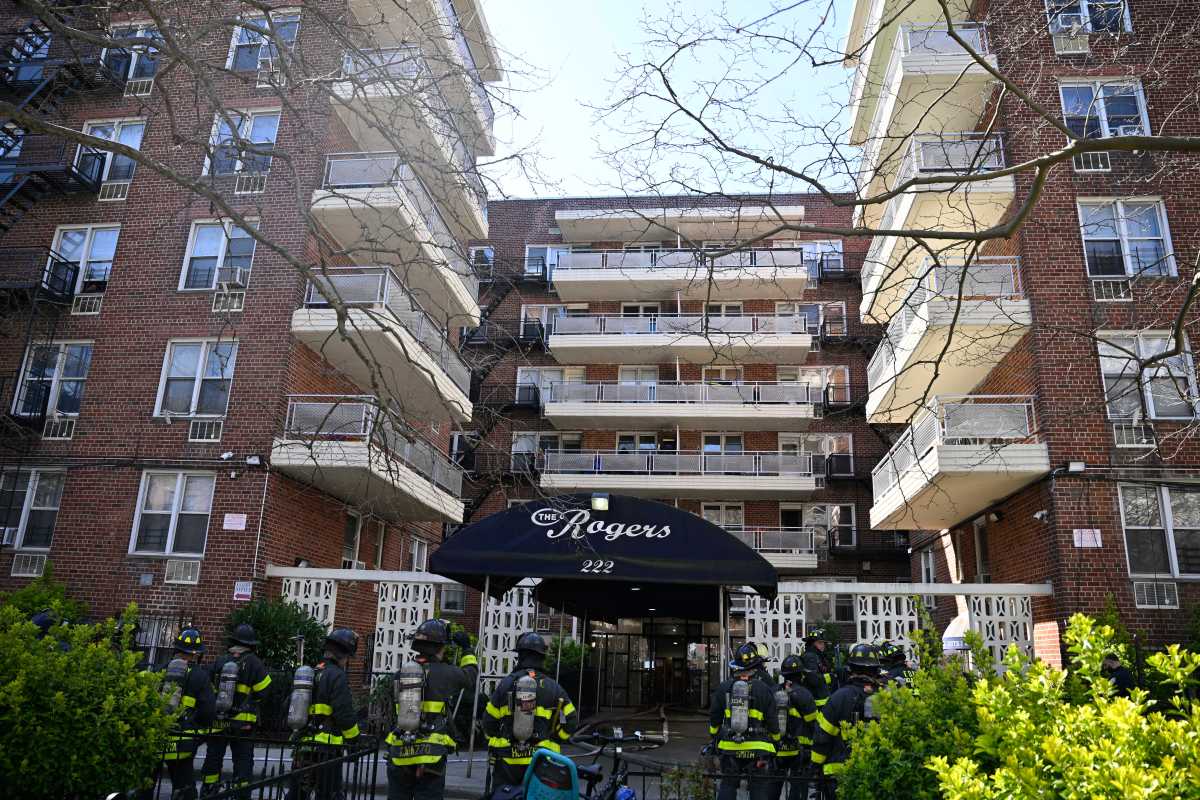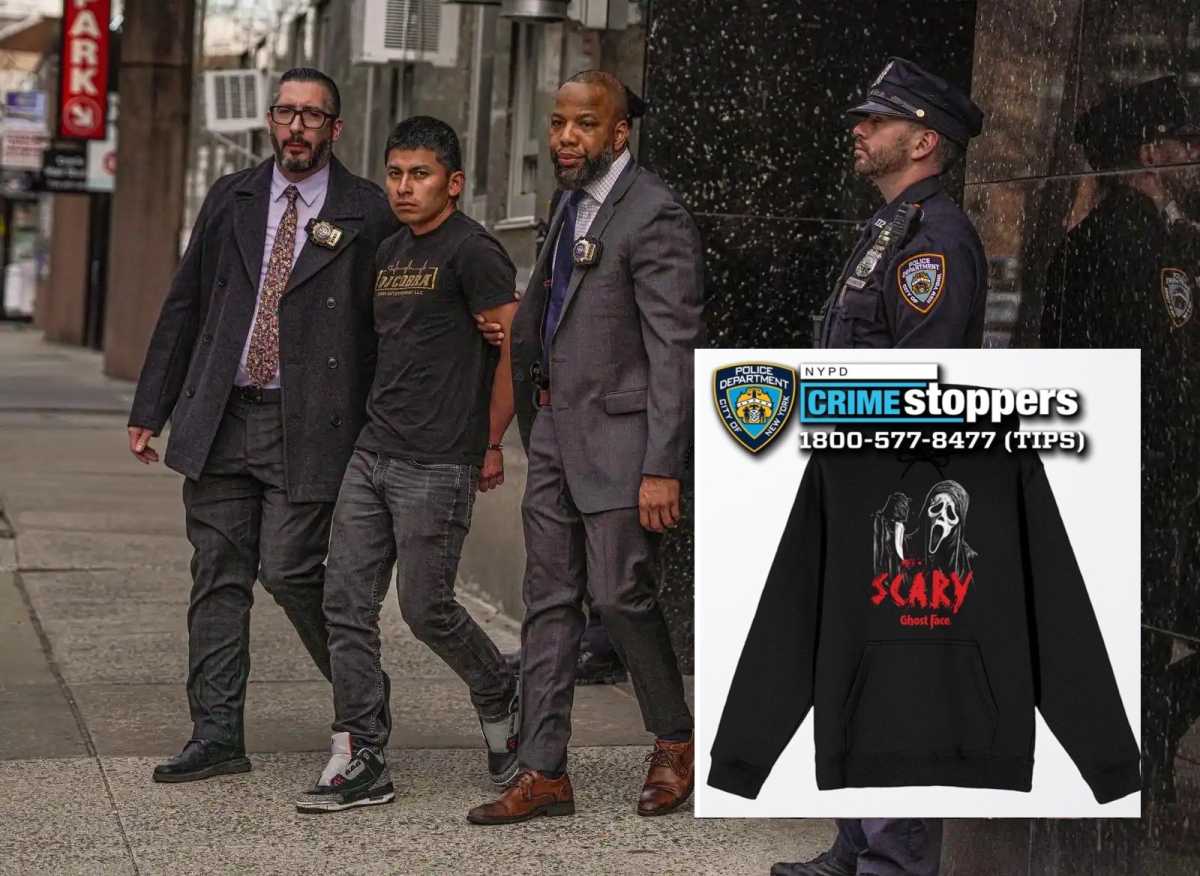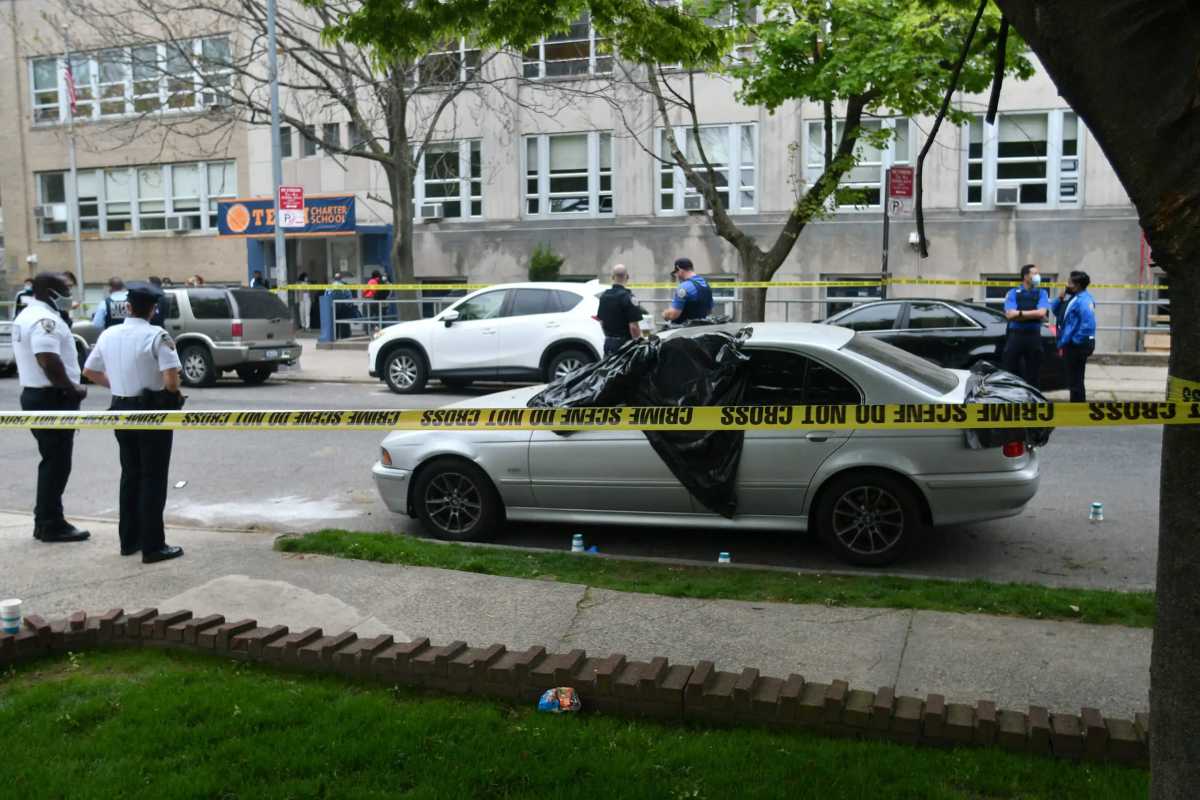Commuter van drivers say unaffordable insurance isn’t insurance at all.
Dozens of commuter van drivers joined with supporters and elected officials outside of One State Street Plaza on June 8, where they plead for assistance for those locals who provide travel to and from transportation deserts, helping some of the community’s most vulnerable residents, and are now stuck paying for a hefty insurance hike.
Commuter vans typically travel along bus routes, charging customers less than the price of a MetroCard to transport them to the nearest train station or bus stop. Historically, these vans date back to the 1980 transit strike in New York City, and have since found a niche within transportation-starved neighborhoods. For those living in the outer boroughs, public transportation can be hard to access — especially with limited bus schedules and during inclement weather
For decades, the commuter van industry has become the gatekeepers of travel for those with limited funds and access to public transportation. The drivers — often members of the communities they ride in — help a great deal of disabled and elderly locals get to and from their destinations.
Now, the operators of this crucial community service say they are in jeopardy of being taken off the road due to what they’re calling unaffordable insurance and are calling on the city to provide an affordable option within the commuter van industry.
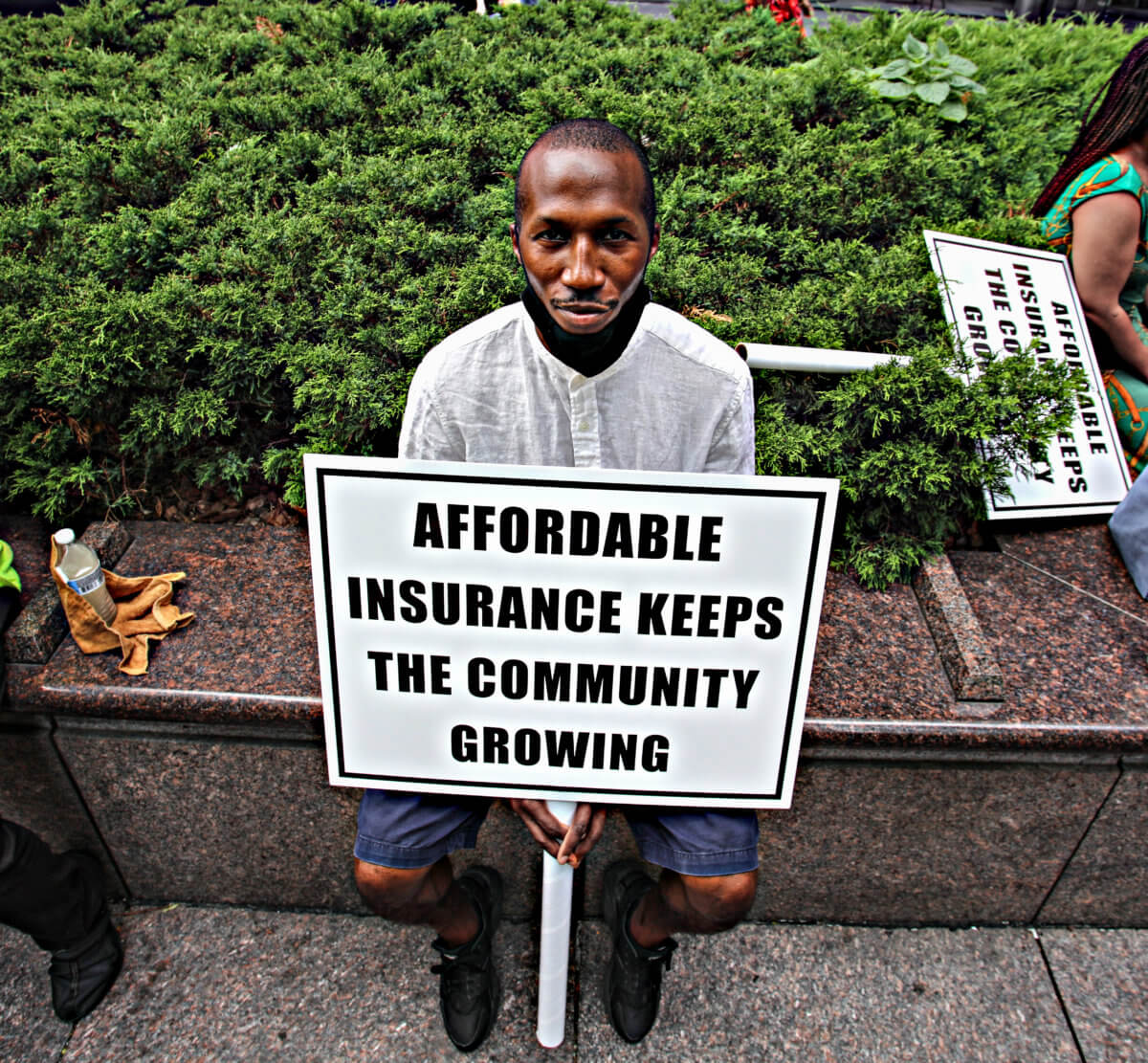
In 2017, New York City Council’s Transportation Committee passed legislation that helped regulate the commuter van industry, requiring an annual report analyzing safety to be conducted by the Taxi and Limousine Commission, and limiting the number of vans to 735 citywide.
As the state and city fully reopen, commuter vans are still caught in the crosshairs of recovery since the coronavirus pandemic devastated their industry due to the lack of customers — and now insurance rates are at an all-time high, making it impossible for drivers to make a living once again.
Growing up in Spring Creek Towers, formerly known as Starrett City, Public Advocate Jumaane Williams says he knows firsthand what it’s like to be forced to take a bus or walk over a mile just to access a train station. For these East New York travelers, taking the B82 or B83 bus is the only way to catch the L line at Far Rockaway or Broadway Junction. When these buses are rerouted or face limited service, commuter vans are there for residents to utilize.
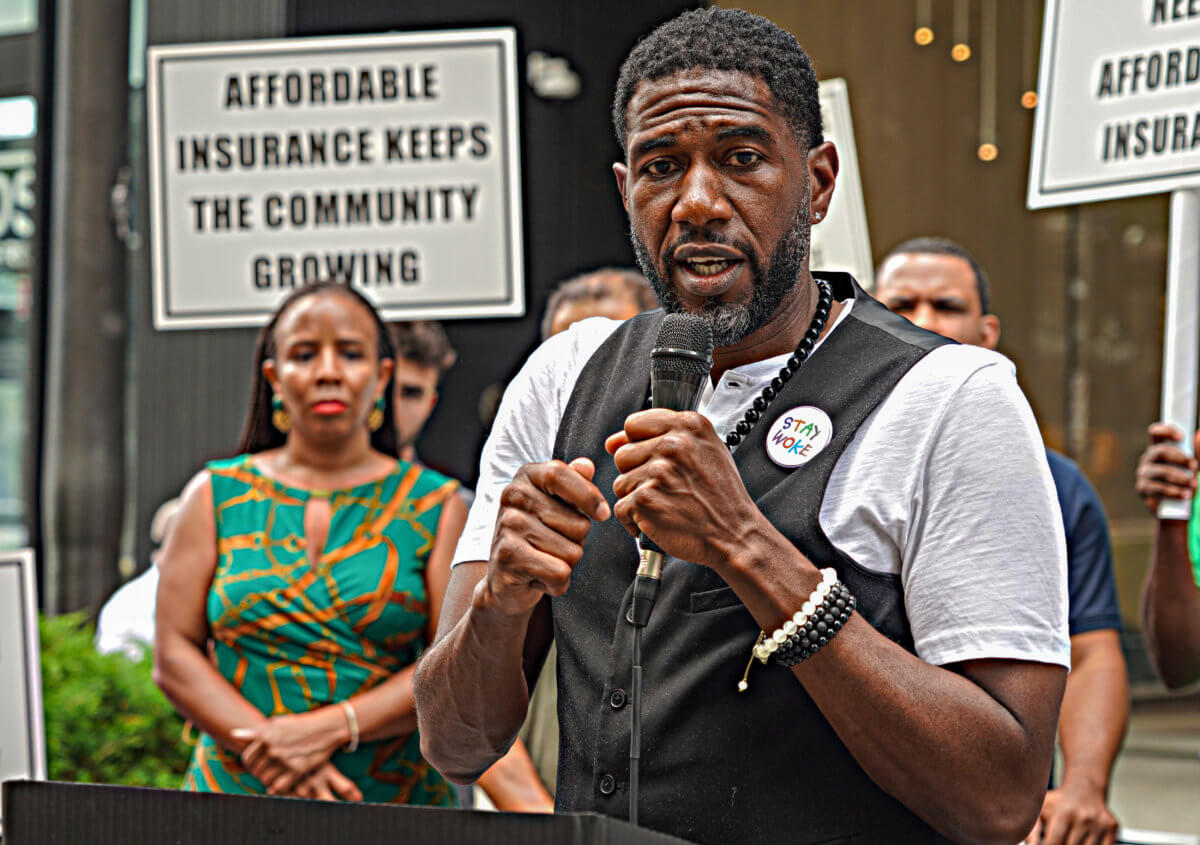
“I lived in Starrett City, and I don’t think I would be able to get around without what we would call the $1 vans in those communities,” Williams said at the July 8 rally. “At that point, I lived in what was considered a two-fare zone. You literally could not get where you needed to go without paying two fares. Now it’s slightly different, we call them transportation deserts because of the difficulty of getting where they want to go. Too many industries don’t allow the people from the community who have been providing the services for many years to benefit from the thing we are expanding.”
With the help of advocates like Williams, drivers are pleading with the city to stop turning its back on them in their time of need and to help ensure that they can make a decent living — while at the same time allowing others to get to work from their community.
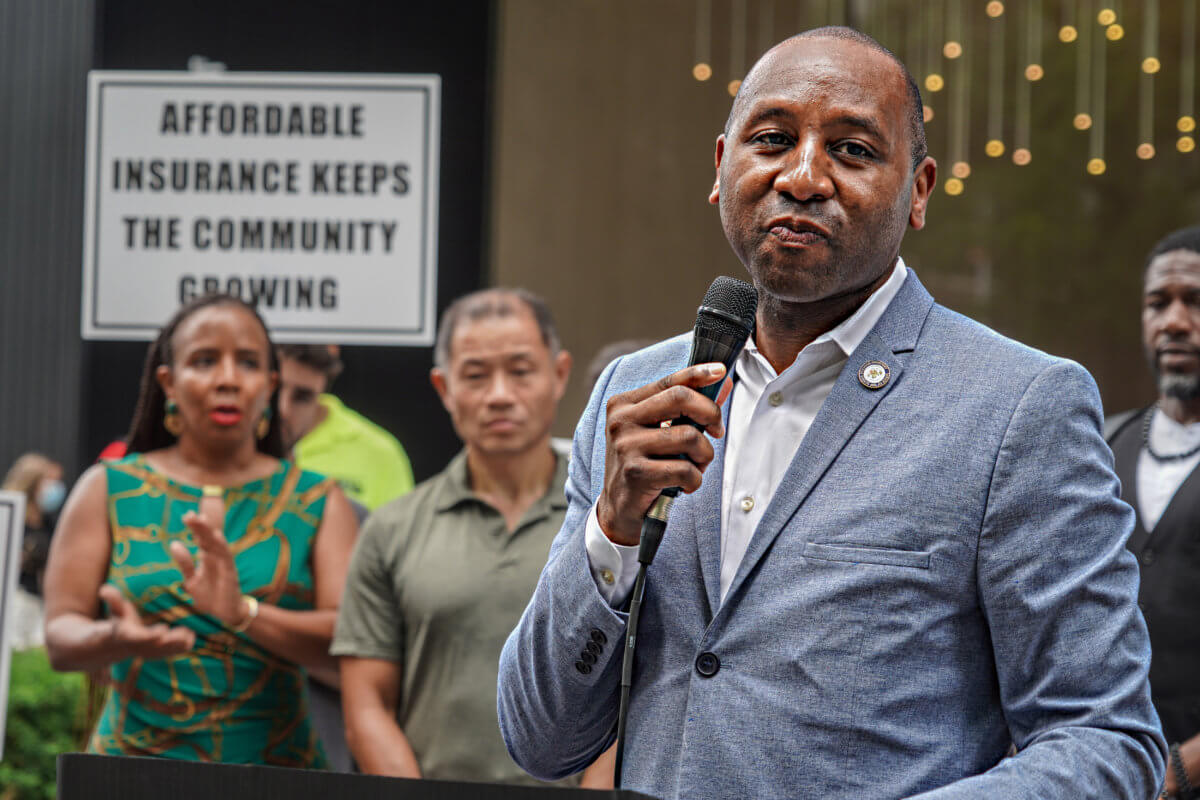
“We are looking for safety in our community. Without insurance we are not safe,” said Leroy Morrison, owner of Alexis Van Lines.
At Thursday’s demonstration, Brooklyn Councilmember Laurie Cumbo told the crowd she grew up on commuter vans in East Flatbush.
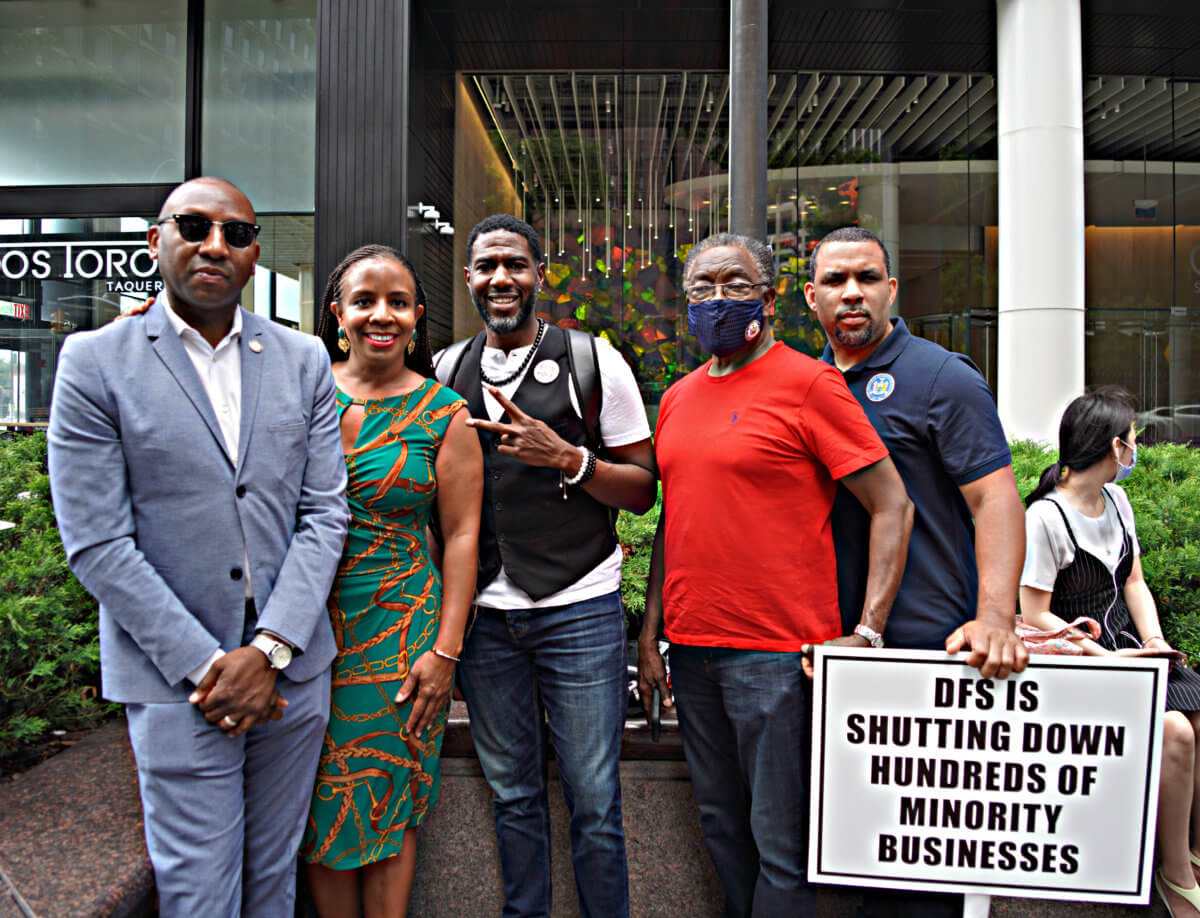
“It is so critical in our communities. These industries have been built up out of a need of necessity. They have been built out as a result of deserts in our communities,” said Cumbo. “It is those blue-collar workers, those hard workers who have to get to work and have to get to work on time and do not have the ability to sit around and wait for a bus that never comes in our community. The schedules are always off. This is something we have utilized, an industry that works on time.”
Compounding the issue, Cumbo said, is the high-cost of digital taxi services.
“Not everybody can afford Uber and Lyft and the other app-based transportation modes,” she said, after which those in attendance chanted, “Commuter van strong!”
Advocates and drivers agreed Thursday that if the city does not make a change to aid their cause, they’ll bring their rally to the state’s capital.
